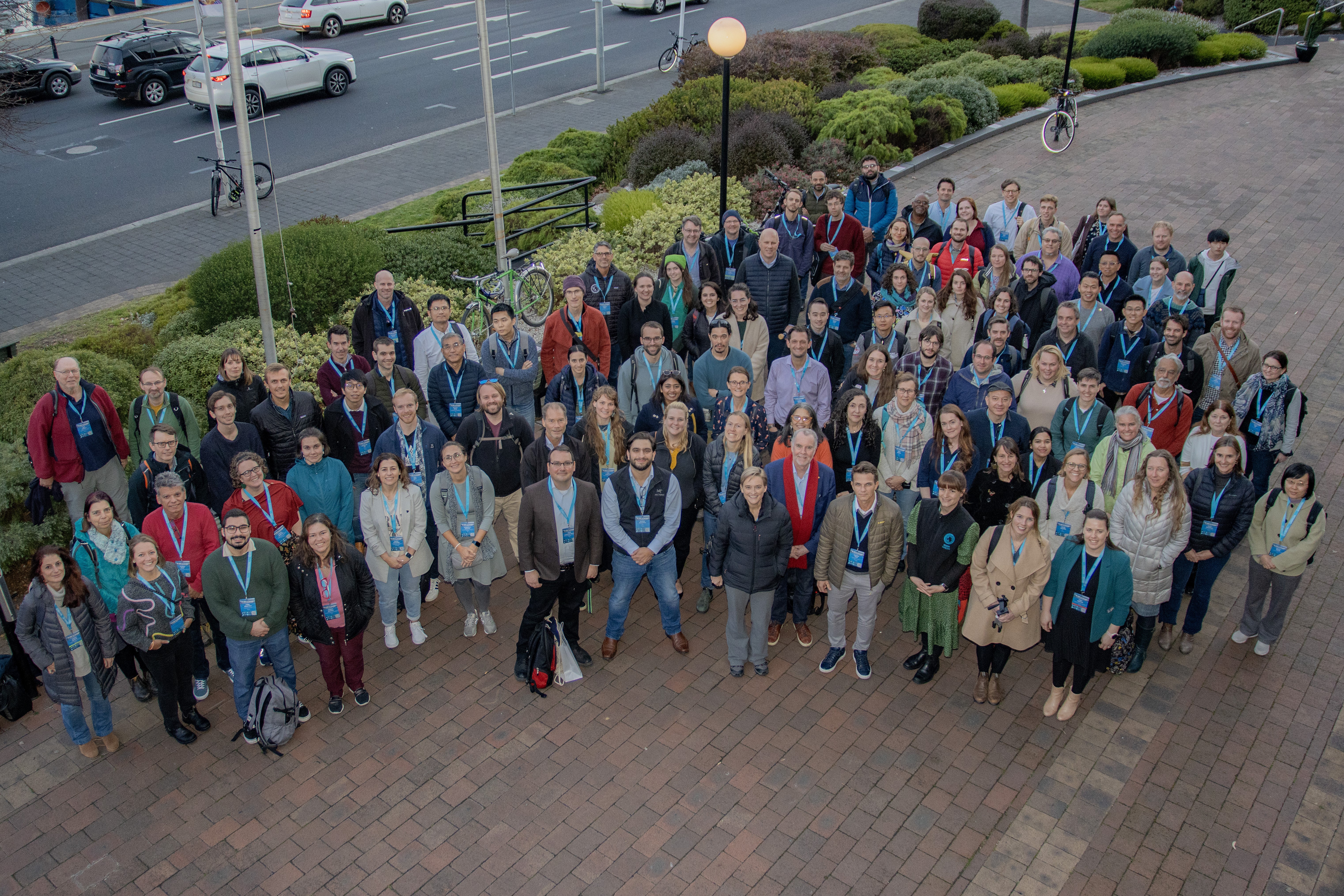News release
From:
Today hundreds of international scientists are sounding a clarion call for urgent expansion of Southern Ocean science in the emerging climate crisis.
This week 300 scientists from 25 nations have been meeting in the Antarctic gateway city of Hobart for the first-ever international conference of the Southern Ocean Observing System (SOOS). A joint statement was released at the close of the conference.
SOOS Co-Chair Dr Sian Henley said this is a critical time to bring the world together and focus on an ocean central to the global climate system.
“It is only due to long-term observations from the last 30 years or so that we now understand how important the Southern Ocean is.
“To a large extent, the Southern Ocean controls the uptake of human-generated heat and carbon into the ocean and keeps our planet liveable.
“However, despite the efforts of long-term programs carried out by several nations, the Southern Ocean remains one of the most under-observed regions on our planet,” Dr Henley said.
“As the extent of winter sea ice crashes and penguin populations shift dramatically, it is more pressing than ever to have a sustained and coordinated Southern Ocean observing system to understand current conditions and inform predictions of future states.”
Dr Andrew Meijers of the SOOS Scientific Steering Committee said that when it comes to climate change, the Southern Ocean is at the centre of the world.
“Global warming is really ocean warming, and the Southern Ocean controls the rate of melt of the Antarctic ice sheet, which is the single greatest uncertainty in projecting future sea level rise.
“The rapid changes happening in Antarctica and the Southern Ocean right now create an imperative for additional research funding.
“Much of the Southern Ocean — the deep ocean, under ice in winter, the carbon cycle, changes in biology due to sea ice, the interaction of ice sheet and ocean — remains a critical gap in our observing network,” Dr Meijers said.
“We need to create a long-term and continuous program of multinational research that is circumpolar, stretching right around Antarctica.”
The mission of SOOS is to provide an international forum where scientists from around the world work together to define the big questions facing Southern Ocean science, and to promote and coordinate the national-level observing activities needed to achieve those scientific goals.
The central hub of SOOS is located in the Institute for Marine and Antarctic Studies (IMAS) at the University of Tasmania.
Video of Antarctic sea ice, wildlife and research is available for download
Photos of marine monitoring technology for download
Expert Reaction
These comments have been collated by the Science Media Centre to provide a variety of expert perspectives on this issue. Feel free to use these quotes in your stories. Views expressed are the personal opinions of the experts named. They do not represent the views of the SMC or any other organisation unless specifically stated.
Professor Craig Stevens, Principal Scientist - Marine Physics, NIWA
From the perspective of New Zealand, a modest island economy very close to the Southern Ocean, it is vital that we sustain observations of this rapidly changing component of the planet’s climate system.
The risk if we don’t is that we will have far less warning of future changes that will be felt throughout the globe.



 Australia; TAS
Australia; TAS



